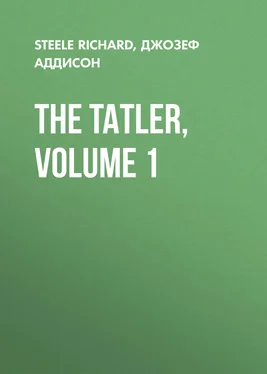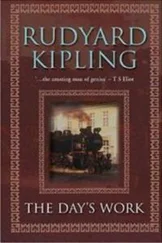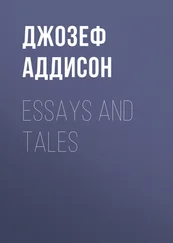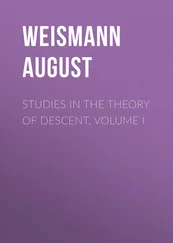Джозеф Аддисон - The Tatler, Volume 1
Здесь есть возможность читать онлайн «Джозеф Аддисон - The Tatler, Volume 1» — ознакомительный отрывок электронной книги совершенно бесплатно, а после прочтения отрывка купить полную версию. В некоторых случаях можно слушать аудио, скачать через торрент в формате fb2 и присутствует краткое содержание. Жанр: foreign_prose, foreign_antique, на английском языке. Описание произведения, (предисловие) а так же отзывы посетителей доступны на портале библиотеки ЛибКат.
- Название:The Tatler, Volume 1
- Автор:
- Жанр:
- Год:неизвестен
- ISBN:нет данных
- Рейтинг книги:4 / 5. Голосов: 1
-
Избранное:Добавить в избранное
- Отзывы:
-
Ваша оценка:
- 80
- 1
- 2
- 3
- 4
- 5
The Tatler, Volume 1: краткое содержание, описание и аннотация
Предлагаем к чтению аннотацию, описание, краткое содержание или предисловие (зависит от того, что написал сам автор книги «The Tatler, Volume 1»). Если вы не нашли необходимую информацию о книге — напишите в комментариях, мы постараемся отыскать её.
The Tatler, Volume 1 — читать онлайн ознакомительный отрывок
Ниже представлен текст книги, разбитый по страницам. Система сохранения места последней прочитанной страницы, позволяет с удобством читать онлайн бесплатно книгу «The Tatler, Volume 1», без необходимости каждый раз заново искать на чём Вы остановились. Поставьте закладку, и сможете в любой момент перейти на страницу, на которой закончили чтение.
Интервал:
Закладка:
Unlike the members of the Spectator's Club, the dramatis personæ introduced in the Tatler do not occupy a very prominent place in the development of the work. Isaac Bickerstaff himself, an old man of sixty-four, "a philosopher, an humourist, an astrologer, and a censor," is rather vaguely sketched, and his familiar, Pacolet, is made use of chiefly in the earlier numbers. The occasional references to Bickerstaff's half-sister, Jenny Distaff, 13 13 No. 10.
and her husband, Tanquillus, and to his three nephews and their conduct in the presence of a "beautiful woman of honour," 14 14 No. 30.
gave Steele a framework for some charming sketches of domestic life. It is not until No. 132 that we have the amusing account of the members of Bickerstaff's Club, the Trumpet, in Shire Lane. There were Sir Geoffrey Notch, a gentleman of an ancient family, who had wasted his estate in his youth, and called every thriving man a pitiful upstart; Major Matchlock, with his reminiscences of the Civil War; Dick Reptile, and the Bencher who was always praising the wit of former days, and telling stories of Jack Ogle, with whom he pretended to have been intimate in his youth. Very little use was afterwards made of this promising material.
The poet John Gay has given an excellent account of the work accomplished by Steele and Addison in a pamphlet called "The Present State of Wit" (1711). Speaking of the discontinuance of the Tatler , he says: "His disappearing seemed to be bewailed as some general calamity: every one wanted so agreeable an amusement; and the coffee-houses began to be sensible that the Esquire's Lucubrations alone had brought them more customers than all their other newspapers put together. It must, indeed, be confessed that never man threw up his pen under stronger temptations to have employed it longer; his reputation was at a greater height than, I believe, ever any living author's was before him.... There is this noble difference between him and all the rest of our polite and gallant authors: the latter have endeavoured to please the age by falling in with them, and encouraging them in their fashionable vices and false notions of things. It would have been a jest some time since, for a man to have asserted that anything witty could be said in praise of a married state; or that devotion and virtue were any way necessary to the character of a fine gentleman. Bickerstaff ventured to tell the town that they were a parcel of fops, fools, and vain coquettes; but in such a manner as even pleased them, and made them more than half inclined to believe that he spoke truth. Instead of complying with the false sentiments or vicious tastes of the age, either in morality, criticism, or good breeding, he has boldly assured them that they were altogether in the wrong, and commanded them, with an authority which perfectly well became him, to surrender themselves to his arguments for virtue and good sense.
"It is incredible to conceive the effect his writings have had on the town; how many thousand follies they have either quite banished, or given a very great check to; how much countenance they have added to virtue and religion; how many people they have rendered happy, by showing them it was their own fault if they were not so; and, lastly, how entirely they have convinced our fops and young fellows of the value and advantages of learning. He has indeed rescued it out of the hands of pedants and fools, and discovered the true method of making it amiable and lovely to all mankind. In the dress he gives it, it is a most welcome guest at tea-tables and assemblies, and is relished and caressed by the merchants on the 'Change; accordingly, there is not a lady at Court, nor a banker in Lombard Street, who is not verily persuaded that Captain Steele is the greatest scholar and best casuist of any man in England.
"Lastly, his writings have set all our wits and men of letters upon a new way of thinking, of which they had little or no notion before; and though we cannot yet say that any of them have come up to the beauties of the original, I think we may venture to affirm that every one of them writes and thinks much more justly than they did some time since."
Gay's opinion has been confirmed by the best judges of nearly two centuries, and there is no need to labour the question of the wit and wisdom of the Tatler . But some examples may be cited in illustration of the topics on which Steele and his friends wrote, and the manner in which they dealt with them. The very first numbers contained illustrations of most of what were to be the characteristics of the paper. There is the account of the very pretty gentleman at White's Chocolate-house thrown into a sad condition by a passing vision of a young lady; the notice of Betterton's benefit performance; the comments on the war; the campaign against Partridge, with the declaration that all who were good for nothing would be included among the deceased; the discussion on the morality of the stage, with praise of Mrs. Bicknell and reproaches upon a young nobleman who came drunk to the play; the comparison of the rival beauties, Chloe and Clarissa; the satire on the Italian opera, and on Pinkethman's company of strollers; and the allegorical paper on Fælicia, or Britain. All these and other matters are dealt with in the four numbers which were distributed gratuitously; as the work progressed the principal change, besides the disappearance of the paragraphs of news, was the development of the sustained essay on morals or manners, and the less frequent indulgence in satire upon individual offenders, and in personal allusions in general. This change seems to have been the result partly of design, and partly of circumstances, including Addison's influence on the work. Steele himself said, as we have seen, that the Tatler was raised to a greater height than he had designed; but no doubt he realised that he must feel his way, and be at first a tatler rather than a preacher. After some grave remarks about duelling in an early paper ( No. 26 Конец ознакомительного фрагмента. Текст предоставлен ООО «ЛитРес». Прочитайте эту книгу целиком, купив полную легальную версию на ЛитРес. Безопасно оплатить книгу можно банковской картой Visa, MasterCard, Maestro, со счета мобильного телефона, с платежного терминала, в салоне МТС или Связной, через PayPal, WebMoney, Яндекс.Деньги, QIWI Кошелек, бонусными картами или другим удобным Вам способом.
), he makes Pacolet, Bickerstaff's familiar, say, "It was too soon to give my discourse on this subject so serious a turn; you have chiefly to do with that part of mankind which must be led into reflection by degrees, and you must treat this custom with humour and raillery to get an audience, before you come to pronounce sentence upon it."
Follies and weaknesses are ridiculed in the Tatler in a genial spirit, by one who was fully alive to his own imperfections, and point is usually given to the papers by a sketch of some veiled or imaginary individual. In this way Bickerstaff treats of fops, 15 15 No. 142.
of wags, 16 16 No. 184.
of coquettes, 17 17 No. 27.
of the lady who condemned the vice of the age, meaning the only vice of which she was not guilty; 18 18 No. 210.
of impudence; 19 19 No. 168.
and of pride and vanity. 20 20 Nos. 127, 186.
In a graver tone he attacks the practice of duelling; 21 21 Nos. 25 , 26 , 29 , 31 , 38 , 39 .
gamesters and sharpers; 22 22 Nos. 56, &c.
drunken "roarers" and "scowrers"; 23 23 Nos. 40 , 45 .
and brutal pastimes at the Bear Garden and elsewhere. 24 24 No. 134.
The campaign against swindlers exposed Steele to serious threats on more than one occasion. 25 25 See Nos. 115, 271.
Интервал:
Закладка:
Похожие книги на «The Tatler, Volume 1»
Представляем Вашему вниманию похожие книги на «The Tatler, Volume 1» списком для выбора. Мы отобрали схожую по названию и смыслу литературу в надежде предоставить читателям больше вариантов отыскать новые, интересные, ещё непрочитанные произведения.
Обсуждение, отзывы о книге «The Tatler, Volume 1» и просто собственные мнения читателей. Оставьте ваши комментарии, напишите, что Вы думаете о произведении, его смысле или главных героях. Укажите что конкретно понравилось, а что нет, и почему Вы так считаете.












